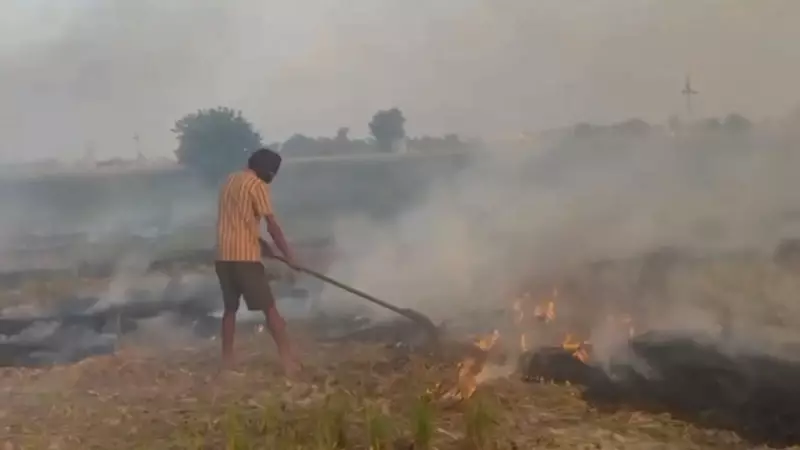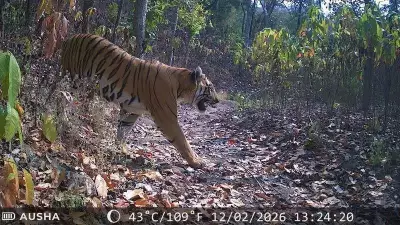
As the winter season approaches, Punjab's stubble burning crisis has taken a alarming turn, with Tarn Taran district emerging as the epicenter of this environmental challenge. Recent data reveals that Tarn Taran alone has recorded a staggering 1,169 stubble burning incidents, making it the worst-affected district in the state.
The District-Wide Breakdown
The situation across Punjab presents a concerning picture of widespread agricultural practices that contribute significantly to air pollution. Following Tarn Taran, Amritsar reported 857 cases, while Sangrur witnessed 793 incidents. Other districts showing significant numbers include Gurdaspur with 546 cases and Patiala with 534 recorded instances of crop residue burning.
Seasonal Patterns and Environmental Impact
The timing of these incidents coincides with the post-monsoon harvesting season, when farmers typically burn crop residue to quickly prepare their fields for the next sowing cycle. This practice, while convenient for farmers, releases massive amounts of particulate matter and harmful pollutants into the atmosphere, contributing to the deteriorating air quality across North India, including the National Capital Region.
The Larger Environmental Concern
Stubble burning has become a major point of contention in environmental discussions, particularly as Delhi and surrounding areas grapple with severe air pollution during the winter months. The smoke from these agricultural fires travels across state boundaries, creating a public health crisis that affects millions of people.
Government Response and Alternatives
State and central governments have been promoting alternative solutions to stubble burning, including:
- Happy Seeder technology that allows sowing without removing crop residue
- Biomass management projects to convert agricultural waste into useful products
- Financial incentives for farmers adopting sustainable practices
- Awareness campaigns about the long-term environmental consequences
Despite these efforts, the high number of incidents in districts like Tarn Taran indicates that much work remains to be done in convincing farmers to adopt alternative methods and providing them with accessible solutions.






